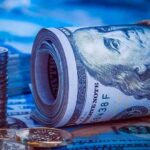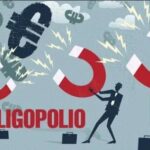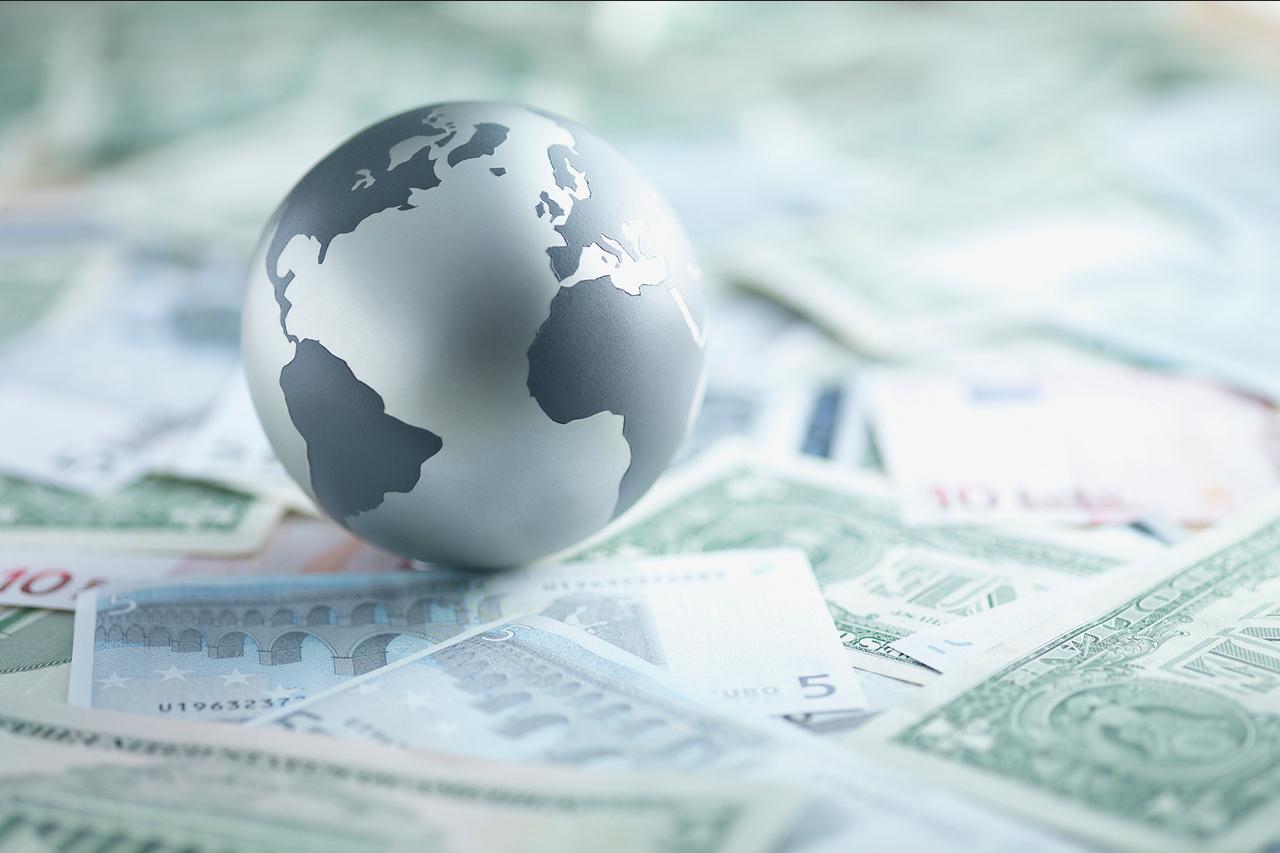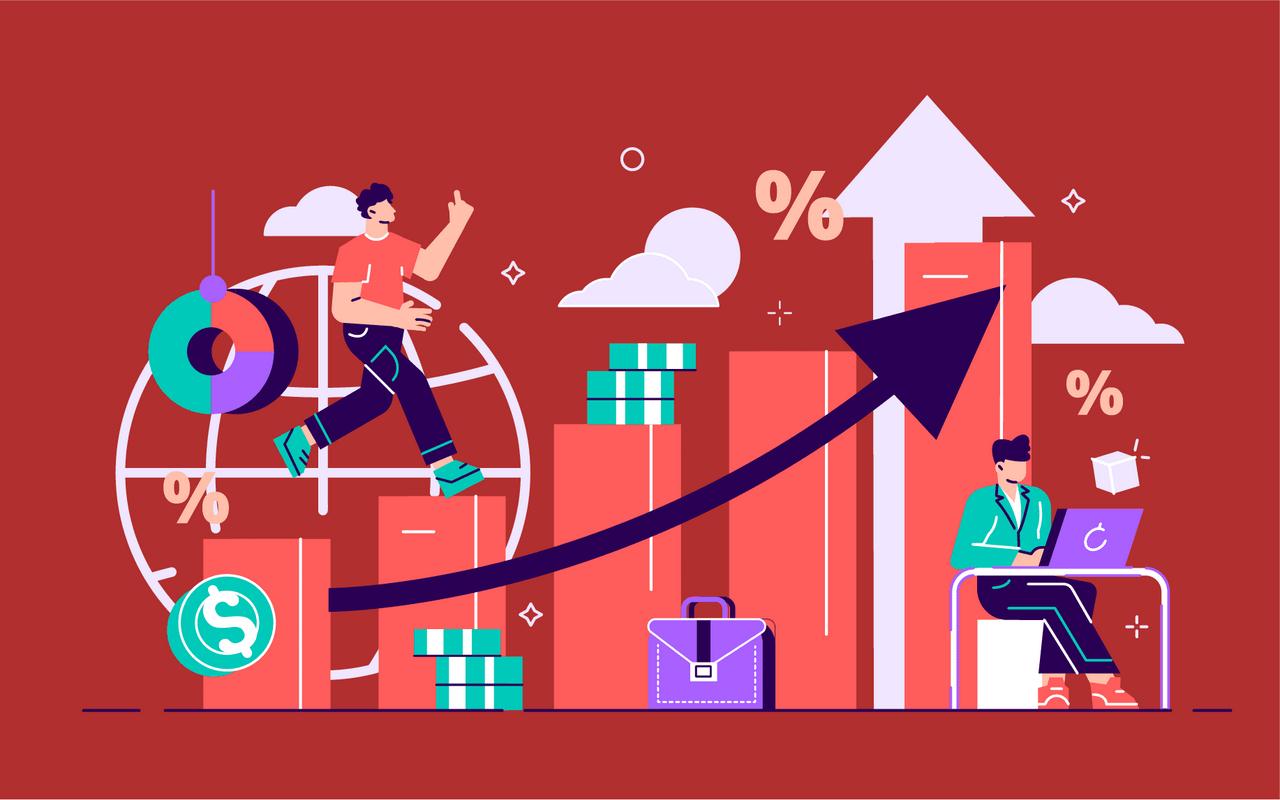Political economy is a branch of social science that studies the relationships between individuals and society and between markets and the state, using a diverse set of tools and methods drawn mainly from economics, political science and sociology.
The term political economy is derived from the Greek polis, meaning “city” or “state” , and oikonomos, meaning ” someone who manages a household or estate” .
History of political economy
As a discipline, political economy originated in moral philosophy, in the 18th century, to explore the administration of the wealth of states, with “political” meaning the Greek word politics and “economy” meaning the Greek word “okonomie.” » (home management).
Early work in political economy is generally attributed to the British scholars Adam Smith, Thomas Malthus, and David Ricardo, although they were preceded by the work of French physiocrats, such as François Quesnay (1694–1774) and Anne-Robert-Jacques Turgot (1727 –1781).
In the late 19th century, the term “economics” began to gradually replace the term “political economy” with the emergence of mathematical models that coincided with the publication of an influential textbook by Alfred Marshall in 1890.
Economics as a science
Previously, William Stanley Jevons, a proponent of applied mathematical methods, advocated economics for brevity and in the hope that the term would become “the recognized name of a science . “
Google Ngram Viewer citation measurement metrics indicate that use of the term “economics” began to eclipse “political economy” around 1910, becoming the preferred term for the discipline in 1920.
Today, the term ” economics ” generally refers to the limited study of economics absent other political and social considerations, while the term “political economy” represents a distinct and competitive approach.
Etymology of Political Economy
Originally, political economy meant the study of the conditions under which production or consumption was organized within limited parameters in nation-states .
In this way, this field of study expanded the emphasis of economics, which comes from the Greek oikos (meaning “home”) and nomos (meaning “law” or “order”). Political economy was intended to express the laws of wealth production at the state level, just as economics was the ordering of the home.
The phrase économie politique (translated into English as “Political Economy” and into Spanish as Political Economy) first appeared in France in 1615 with the well-known book by Antoine de Montchrétien, Traité de l’economie politique (Treatise on Political Economy). .
Other contemporary scholars trace the roots of this study to the 13th-century Tunisian Arab historian and sociologist Ibn Khaldun, for his work in making the distinction between “profit” and “sustenance,” in terms of modern political economy, surplus, and what is required for the reproduction of classes respectively. He also calls for the creation of a science to explain society and continues to outline these ideas in his major work, the Muqaddimah. In the states of Al-Muqaddimah Khaldun, “civilization and its well-being, as well as business prosperity, depend on the productivity and efforts of people in all directions for their own interest and benefit”, seen as a modern precursor of the classical economic thought.
Building on this, the French Physiocrats were the first major exponents of political economy ( PE ), although the intellectual responses of Adam Smith, John Stuart Mill, David Ricardo, Henry George, and Karl Marx to the Physiocrats generally receive much more attention. The world’s first chair of political economy was established in 1754 at the University of Naples Federico II, in southern Italy. The Neapolitan philosopher Antonio Genovesi was the first full professor.
In 1763, Joseph von Sonnenfels was appointed Chair of Political Economy at the University of Vienna, Austria. Thomas Malthus, in 1805, became England’s first professor of political economy, at the East India Company College, Haileybury, Hertfordshire. In its contemporary meaning, PE refers to different but related approaches to studying economic and related behaviors, ranging from combining economics with other fields to using different fundamental assumptions that challenge previous economic assumptions:
Political economy, where it is not used as a synonym for economics, can refer to very different things. From an academic point of view, the term can refer to Marxist economics, applied public choice approaches emanating from the Chicago School and the Virginia School.
In common terms, “political economy” can simply refer to the advice given by economists to the government or the public about general economic policy or about specific economic proposals developed by political scientists.
A rapidly growing mainstream literature of the 1970s has expanded beyond the economic policy model in which planners maximize the utility of a representative individual to examine how political forces affect the choice of economic policies, especially as to distribution conflicts and political institutions. Today it is available as an area of independent study at certain colleges and universities.
Current approaches
Political economy most commonly refers to interdisciplinary studies based on economics, sociology and political science to explain how political institutions, the political environment and the economic system (capitalist, socialist, communist or mixed) influence each other. Yeah.
The Journal of Economic Literature’s classification codes associate political economy with three subareas:
(1) the role of government and/or class and power relations in allocating resources for each type of economic system;
(2) International political economy, which studies the economic impacts of international relations; and
(3) Economic models of political or exploitative class processes.
Much of the focus of this discipline is derived from public choice theory, on the one hand, and radical political economy, on the other hand, both dating from the 1960s.
The theory of public choice
Public choice theory is a microfoundations theory closely intertwined with political economy.
Both approaches model voters, politicians, and bureaucrats as agents who behave primarily in self-interested ways, in contrast to a view, attributed to earlier mainstream economists, of government officials attempting to maximize individual utilities from some kind of social welfare function. .
As such, economists and political scientists often associate political economy with approaches that use rational choice assumptions , especially in game theory and in the examination of phenomena beyond the standard remit of economics, such as government failure. and complex decision-making in the context of which the term “positive political economy” is common.
Other “traditional” topics include the analysis of public policy issues such as economic regulation, monopoly, rent seeking, market protection, institutional corruption, and distribution policy.
Empirical analysis includes the influence of elections on the choice of economic policy, determinants and forecasting models of electoral results, political business cycles, central bank independence, and excessive deficit policy.
A more recent approach has been to model economic policy and political institutions in terms of the interactions between economic and political agents and institutions, including the apparent discrepancy of economic policy and the recommendations of economists through the lens of the transaction costs.
Since the mid-1990s, the field has expanded, partly with the help of new international data sets that make it possible to test hypotheses about comparative economic systems and institutions. Topics have included the breakdown of nations, the origins and rate of change of political institutions in relation to economic growth, development, financial markets and regulation, the importance of institutions, backwardness, reforming economies in transition, the role of culture, ethnicity and gender in explaining economic outcomes, macroeconomic policy, the environment, equity and the relationship of constitutions to economic, theoretical and empirical policy.
Other important milestones in the development of the discipline include:
New political economy
That can treat economic ideologies as the phenomenon to be explained, according to the traditions of Marxist political economy.
Therefore, Charles S. Maier suggests that a political economy approach “interrogates economic doctrines to reveal their sociological and political premises…in short, [regards] economic ideas and behavior not as frameworks for analysis, but as beliefs.” and actions that must explain themselves.
This approach informs Andrew Gamble’s The Free Economy and the Strong State (Palgrave Macmillan, 1988) and Colin Hay’s The Political Economy of New Work (Manchester University Press, 1999). It also informs much work published in New Political Economy, an international journal founded by academics at the University of Sheffield in 1996.
International Political Economy (IPE):
An interdisciplinary field that includes approaches to the actions of various actors. In the United States, these approaches are associated with the journal International Organization, which in the 1970s became the leading IPE journal under the editorship of Robert Keohane, Peter J. Katzenstein, and Stephen Krasner.
They are also associated with the journal The Review of International Political Economy. There is also a more critical school of IPE, inspired by thinkers such as Antonio Gramsci and Karl Polanyi; two main figures are Matthew Watson and Robert W. Cox.
Social Sciences Approach
The use of an approach to this discipline by anthropologists, sociologists and geographers used in reference to policy regimes or economic values that arise primarily at the level of states or regional governance, but also within smaller social groups and social networks.
Because these regimes influence and are influenced by the organization of social and economic capital, the analysis of dimensions that lack a standard economic value (for example, the political economy of language, gender, or religion) is often based in the concepts used in Marxist critiques of capital. Such approaches expand neo-Marxian scholarship related to development and underdevelopment postulated by André Gunder Frank and Immanuel Wallerstein.
Story focus
Historians have used PE to explore the ways in the past that people and groups with common economic interests have used politics to make changes beneficial to their interests.
Approach from the right
Political Economy and Law is a recent attempt within legal studies to engage explicitly with the literature on political economy.
In the 1920s and 1930s, legal realists (e.g., Robert Hale) and intellectuals (e.g., John Commons) addressed issues related to political economy.
In the second half of the 20th century, lawyers associated with the Chicago School incorporated certain intellectual traditions of economics. However, since the 2007 crisis, legal scholars, especially related to international law, have resorted to participating more explicitly in the debates, methodology and various topics within the texts of the discipline (EP).
Thomas Piketty’s approach
The approach and call to action of Thomas Piketty, who advocated the reintroduction of political consideration and political science knowledge more generally into the discipline of economics as a way to improve the strength of the discipline and remedy its shortcomings, which became evident after the 2008 financial crisis.
Economics and Politics, according to King’s College London
In 2010, the only Department of Political Economy in the United Kingdom was formally established at King’s College London.
The logic of this academic unit was that “the disciplines of Politics and Economics are inextricably linked,” and that “it was not possible to adequately understand political processes without exploring the economic context in which politics operates.”
The UK Group
In 2017, the UK Political Economy Group (abbreviated PolEconUK) was established as a research consortium in the field of political economy. It organizes an annual conference and counts among its member institutions Oxford, Cambridge, King’s College London, Warwick University and The London School of Economics.
National and comparative political economy
Object of study of the national political economy
The study of domestic political economy is primarily concerned with the relative balance in a country’s economy between state and market forces.
Much of this debate goes back to the thinking of the English political economist John Maynard Keynes (1883-1946), who argued in The General Theory of Employment, Interest and Money (1935–36) that there is an inverse relationship between unemployment and inflation and that governments must manipulate fiscal policy to ensure a balance between the two.
The so-called Keynesian revolution, which occurred at a time when governments were trying to ameliorate the effects of the Crisis of ’29, contributed to the rise of the welfare state and the increase in the size of government relative to the private sector.
In some countries, particularly the United States, the development of Keynesianism brought about a gradual change in the meaning of liberalism, from a doctrine that calls for a relatively passive state and an economy guided by the “invisible hand” of the market in view of that The State must actively intervene in the economy to generate growth and maintain employment levels.
From the 1930s, Keynesianism dominated not only domestic economic policy, but also the development of the post-World War II Bretton Woods international economic system, which included the creation of the International Monetary Fund (IMF) and the World Bank. In fact, Keynesianism was practiced by countries of all political complexities, including those that embraced capitalism (e.g., the United States and the United Kingdom), social democracy (e.g., Sweden), and even fascism (e.g., the Adolf Hitler’s Nazi Germany.
However, in the 1970s, many Western countries experienced ” stagflation,” or simultaneous high levels of unemployment and inflation, a phenomenon that contradicted Keynes’s view. The result was a revival of classical liberalism, also known as ” neoliberalism”, which became the cornerstone of economic policy in the United States under President Ronald Reagan (1981–89) and in the United Kingdom under Prime Minister Margaret Thatcher (1979–90) Led by American economist Milton Friedman and other advocates of monetarism (the view that the main determinant of economic growth is the money supply rather than fiscal policy), neoliberals and others argued that the The state should once again limit its role in the economy, sell off national industries and promote free trade.
Supporters of this approach, who influenced the policies of international financial institutions and governments around the world, argued that free markets would generate continued prosperity.
Opponents of neoliberalism have argued that the theory ignores many of the negative social and political consequences of free markets, including the creation of large wealth disparities and environmental damage. In the 1990s, a central point of debate was the North American Free Trade Agreement (NAFTA), which created a free trade zone between the United States, Canada, and Mexico. Since it came into effect in 1994, the agreement has generated widespread controversy over whether it has created or eliminated jobs in the United States and Canada and whether it has helped or hurt the environment, working conditions, and local cultures in Mexico.
Object of study of comparative political economy
Comparative political economy studies the interactions between the state, markets and society, both national and international. At both an empirical and normative level, he uses sophisticated analytical tools and methodologies in his research.
Rational choice theorists, for example, analyze individual behavior and even the policies of states in terms of maximizing benefits and minimizing costs, and public choice theorists focus on how policy options are shaped or They restrict through incentives incorporated into the routines of public and private organizations.
Modeling techniques adapted from econometrics are often applied to many different economic policy questions.
Political economists attempting to understand domestic macroeconomic policy often study the influence of political institutions (e.g., legislatures, executives, and judiciaries) and the implementation of public policies by bureaucratic agencies.
The influence of political and social actors (e.g. interest groups, political parties, churches, elections and the media) and ideologies (e.g. democracy, fascism or communism) is also measured.
Comparative analysis also considers the degree to which international political and economic conditions increasingly blur the line between domestic and foreign policies in different countries.
For example, in many countries trade policy no longer reflects strictly national objectives, but also takes into account the trade policies of other governments and the directives of international financial institutions.
Many sociologists focus on the impact that policies have on the public and the degree of public support that particular policies enjoy.
Similarly, sociologists and some political scientists are also interested in the extent to which policies are generated primarily from above by elites or from below by the public. One such study is so-called “critical political economy,” which has its roots in interpretations of the writings of Karl Marx .
For many Marxists (and contemporary adherents of different strands of Marxist thought), government efforts to manage different parts of the economy are supposed to further the moral order of bourgeois values. As in the case of fiscal policy, for example, government policies are assumed to support the interests of the wealthy or elite over those of the masses.
Ultimately, comparative analysts may ask why countries in certain areas of the world play a particularly important role in the international economy. They also examine why “corporate” associations between state, industry and labor were formed in some states and not others, why there are large differences in labor and management relations in the most industrialized countries, what types of structures Different economic and political policies countries employ to help their societies adapt to the effects of integration and globalization, and what types of institutions in developing countries advance or retard the development process.











